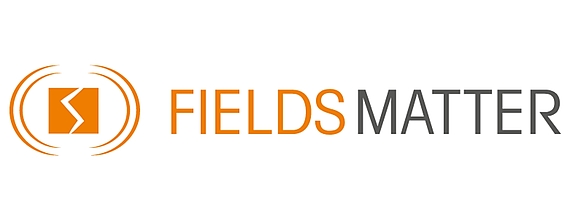Impact of electric fields on grain growth in strontium titanate
Topic
During the last years, considerable effort has been expended in investigating electric-field-assisted sintering (FAST, flash sintering) that can significantly accelerate sintering processes. The underlying mechanisms occurring during the process are still under discussion. Exploring fundamental aspects of field-assisted sintering is very challenging, because experiments are hard to control. Instead of trying to understand the full complexity of field-assisted sintering, observing grain growth in electric field can both simplify the experiments and provide clearer insights into the active mechanisms.
We carried out a series of preliminary experiments, where we observed the grain growth behavior of strontium titanate in electric field using a tailored model geometry. Insulating alumina plates were used to prevent any electric current to flow through the sample and therefore any Joule heating. A gradient of the growth length appears: at the negative electrode growth is strongly accelerated.

We believe that the effect of electric fields on grain growth is related to a defect redistribution across the sample (particularly oxygen and strontium vacancies). Positively charged defects migrate towards the negative electrode and vice versa. A comparison of the expected local defect concentration to the already known impact of defects on grain growth supports this hypothesis.
Our approach spans atomistic theory (calculation of defect structures and potentials at grain boundaries), electron-microscopical observation of boundary non-stoichiometry, thermodynamic and kinetics (calculation of defect migration kinetics, defect distribution and space charge theory) and macroscopic grain growth experiments. We base on special grain boundaries (bicrystals) as well as general boundaries (seeded polycrystals).
Contact person(s)
Prof. Dr. Michael J. Hoffmann | Prof. Dr. Peter Gumbsch |
|---|---|
Karlsuhe Institute of Technology (KIT) Institute for Applied Materials- Ceramic Matreials and Technologies (IAM-KWT) | Karlsuhe Institute of Technology (KIT) Institute for Applied Materials- Computational Materials Science (IAM-CMS) |
Haid-und-Neu-Str. 7 76131 Karlsruhe | Straße an Forum 7 76131 Karlsruhe |
Tel: (+49) 721 6084 4246 | Tel: (+49) 761 6084 4363 |
Fax: (+49) 721 6084 8891 |
|
Proj.-Nr. HO 1165/20-1 | Proj.-Nr. MR 22/6-1 |

